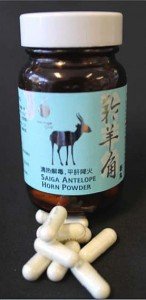A DNA analysis of several traditional Chinese medicine products has revealed illegal and potentially toxic ingredients.
 A new study, published in PLoS Genetics today, analysed 15 samples of traditional Chinese medicines (TCMs) seized at the Australian border, identifying the species origin of ingredients in the pills and powders.
A new study, published in PLoS Genetics today, analysed 15 samples of traditional Chinese medicines (TCMs) seized at the Australian border, identifying the species origin of ingredients in the pills and powders.
Plants identified in analysed products included Ephedra, a potentially toxic stimulant plant banned in the US, Australia and NZ, and Asarum, which may contain Aristolochic acid – a compound just this week associated with a significant increase in bladder cancer in Taiwan. The analysis identified plant DNA from soybeans and nut-bearing plants, but could not confirm if allergen proteins from these plants were included in the products.
Researchers also detected genetic material from the Asian black bear (Ursus thibetanus) and the saiga antelope (Saiga tatarica) which are classified by the IUCN Red List as ‘vulnerable’ and ‘critically endangered’ respectively. Products derived from these animals are illegal to trade according to the Convention on International Trade in Endangered Species (CITES) legislation.
Many of the products were found to contain animal and plant ingredients not listed on the label which – in addition raising health concerns – could violate some religious or cultural strictures.
“TCMs have a long cultural history, but today consumers need to be aware of the legal and health safety issues before adopting them as a treatment option,” Dr Mike Bunce, research leader and Murdoch University Australian Research Council Future Fellow, said.
The research comes as the parliament Health Select Committee is considering the Natural Health Products bill, which aims to tighten regulations around the manufacture, sale and labeling of natural health products in New Zealand.
The Science Media Centre contacted New Zealand experts for further comment. Feel free to use these quotes in your reporting. To follow up, contact the SMC on (04) 499 5476, smc@sciencemediacentre.co.nz
Professor Shaun Holt, Victoria University of Wellington, and member of interim expert committee for the Natural Health Product Regulation Bill, commented:
“Traditional Chinese medicine has been used for thousands of years and there is no doubt that some of the herbs and other biological products that are used will, in time, be shown to be safe and effective. However, currently there are 3 main problems associated with the use of Chinese natural biological products. Firstly, there is a lack of data from good clinical trials on safety and efficacy. Secondly, there are legitimate concerns about product quality in terms of contamination with products that are not supposed to be included. And thirdly, there are concerns that some of the products are from endangered animal species and some products may have been obtained illegally and contributed to the problem. This important paper confirms that the second and third issues are of real concern.
“TCM products are used all around the world, including New Zealand, and my advice to consumers is that they should be very careful. I have no doubt that future research will demonstrate the efficacy and safety of some products, and that quality control will improve to acceptable levels, but currently, I personally would not use or recommend any TCM biological product for the reasons outlined above.”
From the UK SMC:
Edzard Ernst, Professor of Complementary Medicine, Peninsula Medical School, University of Exeter, said:
“The risks of Chinese herbal medicine are numerous: firstly, the herbs themselves can be toxic; secondly, they might interact with prescription drugs; thirdly, they are often contaminated with heavy metals; fourthly, they are frequently adulterated with prescription drugs; fifthly, the practitioners are often not well trained, make unsubstantiated claims and give irresponsible, dangerous advice to their patients.
“Taken together, these risks amount to a significant potential for harm – I would not recommend Chinese herbal medicine to anyone.”